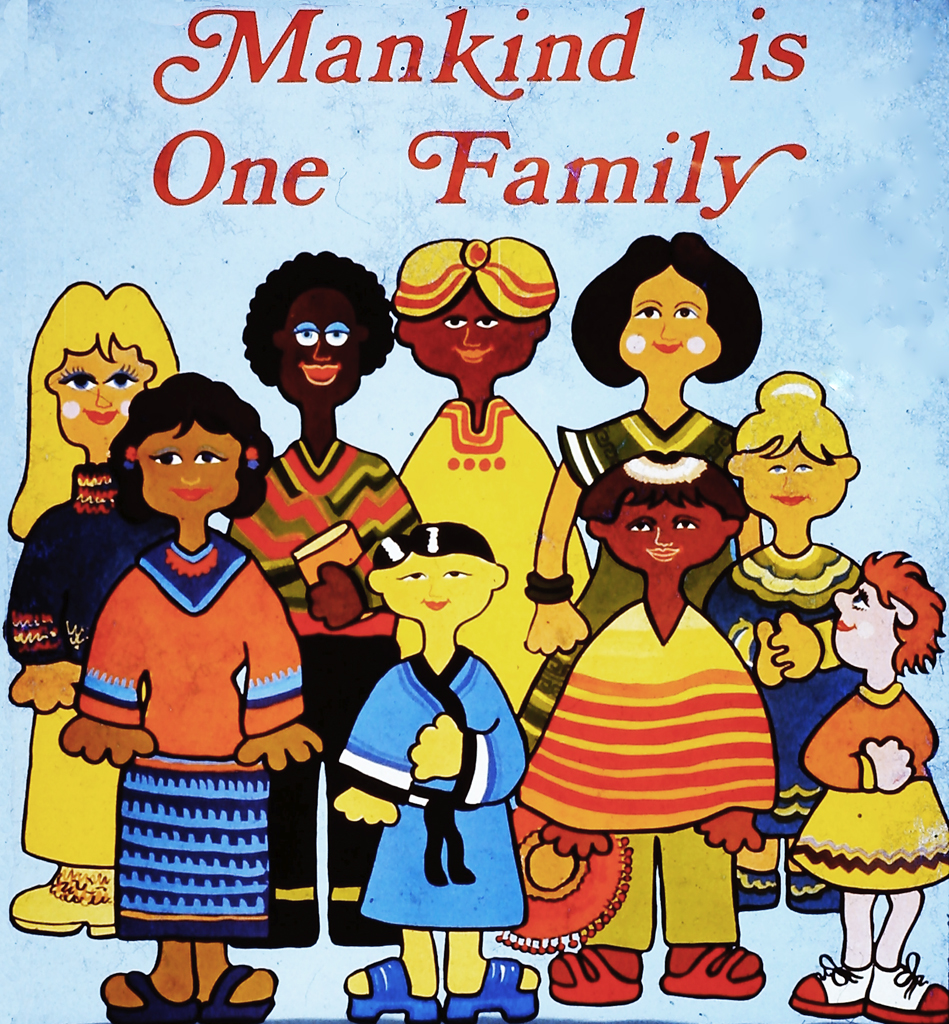The Bahá’í Faith presents a profound narrative of unity and wholeness framed within the doctrine of ‘One Human Family.’ This foundational tenet elucidates the belief that all human beings, irrespective of race, nationality, or creed, are interconnected and share a single origin. The principles derived from this belief not only aim at fostering compassion and empathy among diverse peoples but also emphasize a collective responsibility to the world and each other.
At the core of the Bahá’í teachings lies the assertion that humanity is a singular entity—an idea that challenges traditional notions of division and disparity among cultures. The implications of this declaration provoke an essential shift in perspective, inviting individuals to transcend entrenched biases and to recognize the shared dignity inherent in every person. The concept of ‘One Human Family’ disrupts the historical paradigms that elevate one group over another, encouraging a more inclusive worldview that honors the rich tapestry of human diversity.
As one delves into the implications of this teaching, it becomes apparent that the Bahá’í Faith posits a universal cause: the establishment of world peace and justice. The notion of our collective family compels adherents to actively participate in addressing global challenges, from poverty and inequality to environmental degradation. The Bahá’í perspective suggests that the solutions to these issues cannot be narrowly focused or localized; rather, they must emerge from a cooperative and collaborative ethos embedded in a global consciousness.
Moreover, this foundational teaching envisions a future wherein every individual’s rights and responsibilities align. Central to this vision is the principle of justice—a concept that is profoundly interconnected with the idea of human unity. Justice, in the Bahá’í framework, is not merely the absence of oppression; it is the active promotion of welfare and harmony among different communities. Such an approach fosters a society where everyone is seen as deserving of respect and empowerment, facilitating an atmosphere conducive to progress and collaboration.
The transformative aspect of the ‘One Human Family’ paradigm invites individuals to reconsider their own identities. It encourages a shift from self-centric perspectives to a broader, more inclusive consciousness. By acknowledging shared human experiences and aspirations, individuals can cultivate relationships that transcend superficial differences, thus building bridges among diverse populations. This process propels a collective action that is vital for creating a sustainable future.
Furthermore, the teachings expand upon the importance of education as a cornerstone for achieving unity. In the Bahá’í Faith, education is regarded as both a right and a responsibility. By equipping individuals with knowledge, skills, and moral virtues, communities can be fortified against divisiveness. Educational endeavors foster critical thinking, empathy, and an appreciation for diverse cultures, contributing to a more harmonious global society.
In addition, the emphasis on spiritual development plays a crucial role in realizing the principle of ‘One Human Family.’ The Bahá’í teachings advocate for the cultivation of virtues such as love, kindness, and understanding. This spiritual foundation serves as a catalyst for individuals to act not only in their own interests but also in the interests of others. By fostering moral and ethical growth, individuals are empowered to become agents of change, advocating for unity and peace within their communities.
This vision of humanity as a singular family is not confined to abstract ideals; it has tangible implications for social practices and policies. The exhortation to foster unity inspires collective efforts in various arenas, including community development, interfaith dialogue, and cross-cultural exchanges. Initiatives grounded in the principles of the Bahá’í Faith promote understanding and collaboration, yielding environments where individuals can coalesce despite their differences.
The struggle for global unity is often fraught with challenges, yet the Bahá’í teachings maintain that overcoming these obstacles is integral to human evolution. The infectious spirit of hope and perseverance that underpins the ‘One Human Family’ concept resonates powerfully in a world often characterized by division. This belief serves as an antidote to cynicism, reinforcing the idea that positive change is not only possible but attainable through collective will and action.
As one contemplates the richness of the ‘One Human Family’ principle, it is imperative to consider the potential it holds for individual and societal transformations. By shifting paradigms from isolation to inclusion, individuals can nurture a more empathic and compassionate society. The challenges faced by humanity are opportunities for growth—prompting innovative solutions that arise when people from diverse backgrounds collaborate toward common goals.
Ultimately, the Bahá’í Faith’s ‘One Human Family’ teaching is an invitation to embrace a higher calling, one that envisions a world characterized by mutual respect, justice, and loving-kindness. It emphasizes that the well-being of the individual is inextricably linked to the well-being of the collective. As humanity continues on its journey toward unity, the principles espoused by this faith remind us that our destiny is intertwined, inspiring a concerted effort to forge connections that transcend differences and celebrate our shared humanity.
In conclusion, the essence of the Bahá’í teachings encapsulated in the ‘One Human Family’ premise advocates for a profound existential transformation. This transformative philosophy compels individuals to reimagine their roles within the global tapestry of humanity. The journey toward unity, justice, and peace is not merely a goal but a shared obligation, illuminating pathways toward a more integrated and flourishing world.
